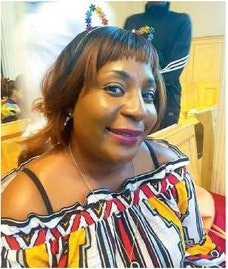61 mins
No Matter How Strong You Are - It Breaks You.
“If they find out back home about the orientation of an LGBT+ individual who then gets deported, then that person faces unimaginable retribution.
Being LGBT+ and moving to a new country can be daunting at the best of times, considering the wide variety of reactions LGBT+ individuals face in differing cultural contexts. Now consider how frightening it must be for LGBT+ asylum seekers who are fleeing from dreadful circumstances from countries where there are horrendous punishments, including imprisonment, torture, or even death on the basis of their orientation. They face isolation from their families and friends, and have no idea what is going to happen to them when they arrive to the country in which they are seeking asylum. In Ireland, asylum seekers are given no information about how long they will retain that status.
Direct Provision is an institutional housing system that was designed a decade and half ago to be a short-term solution for dealing with asylum seekers after they arrived and declared their status in Ireland. Since then many asylum seekers have spent years living in this system, in conditions that are damaging to their health, welfare and life-chances. They are not allowed to work, and they’re not entitled to social welfare, social housing or third level education. With such inhumane conditions, these centres may act as a warning sign – a big red ‘stop’ sign - to prevent asylum seekers using Ireland as an ‘easy access’ route to Europe.
For LGBT+ asylum seekers, Direct Provision comes with extra challenges. According to Emmanuel (not his real name), a young LGBT+ man from Zimbabwe, “the mix of people can be homophobic, because there are many people coming from different countries, cultures, social backgrounds, and different beliefs.”
EXTREME LEVELS OF HOMOPHOBIA
In some cases that homophobia can be taken to extreme levels in Direct Provision, as Mariem, an LGBT+ woman from Tunisia, experienced. “I was new and vulnerable,” she explains. “There was one guy and we spoke the same language. We started a kind of a friendship. He waited to see if I would show interest. I showed no interest, so he became suspicious. I said, ‘No. We can be friends. I’m sorry.’ Then somehow he found out about me not being straight, and he began making my life into a nightmare. I was thinking: ‘I got rid of that homophobic thing that was back home. That’s why I moved to Ireland.’’

Clarice from Zimbabwe: “You’re constantly thinking – when am I going to get out of this place for good?”
“Being single in there is a huge challenge, but being LGBT is just on another level.
Mariem reported the incessant bullying to the management in her Direct Provision Centre, but nothing was done. She began a written correspondence with them to make sure the homophobic bullying was documented. It even came to calling in the Gardaí, but again nothing was done.
Eventually, Mariem fell into a depression. “Everything became black. Every day there were insults and bullying. He kept telling me I was a lesbian, as if it was a bad thing. I went to management to say I was feeling really uncomfortable, but they just told me he was jealous. He carried on and on.”
This homophobic bullying continued for two years. As Mariem recounts, she “couldn’t get away from him”. He even went so far as to make contact with her family in Tunisia, to whom he outed her and spread other rumours.
“Being single in there is a huge challenge, but being LGBT is just on another level,” Mariem says. “No matter how strong you are, it breaks you. I don’t know whether to blame this person or Direct Provision. Maybe if he had had a life outside, it would never have happened.”
In August 2014 a Northern Irish Judge refused to send a Sudanese family back to Direct Provision in the Republic on the grounds that they would face a real risk of being subjected to inhuman or degrading treatment. What does this say about how we’re treating our especially vulnerable LGBT+ people in Direct Provision? “The intersection of challenges and prejudices asylum seekers face are definitely compounded by being LGBT,” says Oonagh Murphy, cofounder of Identity, a group that supports LGBT+ individuals living within the Direct Provision system. They have partnered with the Irish Refugee Council, and have raised enough money through crowdfunding campaigns to arrange for activities from social gatherings to attending Africa Day, and even to a night out in the George last Christmas. For many members this was their first night out in a gay venue.
“You leave home to try and get away from something and then it’s staring you in the face again,” Murphy says. “This simply continues and compounds the problem. While there is a sense of solidarity growing between LGBT+ communities inside and outside Direct Provision, there’s still an onus inside the system of having to learn a new cultural code. Many times people haven’t come to terms with it. Everything is so repressed that often individuals in Direct Provision find themselves coming out in another country. This is so much more difficult.”
ZERO PSYCHIATRIC SUPPORT
According to Clarice, an LGBT+ woman who hails from Zimbabwe: ‘You’re constantly thinking – when am I going to get out of this place for good? When is the wait going to end? Almost everyday I think about it, except when I escape to Dublin, when I forget about it a bit.”
In fact, the first words out of Clarice’s mouth when I ask her about the biggest challenges of being LGBT+ in Direct Provision are “anxiety and depression”. Clarice knows she can go to a GP to get antidepressant medication, but chooses to try and cope with her mental issues by being as productive as she can.
Murphy is quick to point to the damaging lack of supports for LGBT+ people in Direct Provision. “If you leave a culture that is Muslim because you’re gay, and word gets out, this can be incredibly psychologically triggering. It’s not uncommon for people to flee countries where being LGBT+ is punished by a prison sentence or worse, and having your orientation exposed leaves one with the final fear that word will get back. Zimbabweans, for instance, have a big connection to home. If they find out back home about the orientation of an LGBT+ individual who then gets deported, then that person faces unimaginable retribution.
“There is a lack of linked-up services for mental health and asylum seekers. We have a responsibility as a privileged culture to look out for them in that way as well. People are coming from cultures with enormous social prejudices about LGBT+ individuals, to the point of corrective gang rape. There’s a dearth of information about resources available to them. So many people in this situation are vulnerable in manifold ways.”
Clarice talks about how it actually feels to live in Direct Provision. “I have deep feelings of panic because I can’t plan beyond the next week,” she says. “This goes along with sadness and dark depression. I sleep a lot. It’s an absolute rut.”

Lucky Khambule, the Movement of Asylum Seekers in Ireland
In an effort to escape this enforced miasma, Clarice and Mariem co-founded Cultural Liaisons, a group for fellow Direct Provision dwellers with a strong emphasis on embracing LGBT+ members. “Our slogan is ‘Integration with good craic,’” she explains. “We want a local feel. We’re trying to integrate because we don’t want to be clannish – we want to be part of Irish society.”
LGBT+ individuals in Direct Provision are exceptionally vulnerable. Fleeing persecution in their home countries with their lives in their hands, they have to face the trauma of the oppressive Direct Provision Centres, at sea with no state-sponsored integration programmes, and open to hate speech, homophobia and racism within Direct Provision.
THE POWER OF PEOPLE
As Lucky Khambule of the Movement of Asylum Seekers in Ireland (MASI) says: “Asylum Seekers know nothing about their situation, which can be combated by bringing LGBT+ people into communication over a meal. We need to continue building up relationships. The more isolated we are, the more powerless we become. If we don’t act, no change will happen. The power of people getting together sends a big message to those in charge.”
The question many LGBT+ Irish people ask is ‘what can I do to help?’ Identity, the group which Murphy co-founded, is always looking for connections with individuals who have an interest in working on a voluntary basis with LGBT+ asylum seekers who have just arrived – particularly people who may have experience around community development or therapeutic expertise to offer pro bono. You can contact them on the email address: changeofaddressireland@gmail.com. Another start would be to get in touch with Clarice and Mariem’s Cultural Liaisons group (cliaisons@gmail.com) to open up a dialogue and encourage friendly integration within the fusion of both Irish and international contexts. Conversation, empathy and ‘integration with good craic’ are an imperative step in the right direction.
Michelle Darmody
OPINION:
Direct Provision
We should all have a righteous anger at the system of Direct Provision, which is being run in our name.
Cultural differences can be huge. How we eat, how we see the world, how we experience relationships, are all dictated by the culture we grow up in. These differences can sometimes cloud the greater similarities that we share. When people from different cultures come to our shores asking for help, sometimes these similarities are completely forgotten, and with that so too are compassion and empathy.

Once people are separated into categories and filed as commodities, it is easier to turn a blind eye to suffering. Within the Direct Provision system in Ireland, as far as I can see, people are simply inconvenient numbers. (Well, convenient to the businesses that are making money from them, I guess, but inconvenient to the government at large.) We as a nation within the European Union have promised to help and to protect those who come to us seeking asylum. Asylum is a term for the type of protection people are due, a refuge from the horrors that the world can throw at you. Asylum seeking in its original sense is attentive to compassion, but it has become a negative term of reference, thrown in the face of someone asking for a chance to start again.
On hearing that people who seek asylum in Ireland are not allowed to cook in Direct Provision I helped set up a project called Our Table. Our remit was to draw attention to this fact and to use food as a way of telling people’s stories and building connections. Many other food projects have been doing wonderful work bringing the wider Irish public together with those who have travelled here more recently. Sligo Global Kitchen, Solidarity Dinners, Galway’s One World Kitchen are a few who are using food as a powerful tool for building bridges and instigating change. They create events that allow people to show solidarity and come together to get to know each other and each other’s culture through food.
We should all have a righteous anger at the current system of Direct Provision. It is being run in our name, our taxes are going towards supporting and continuing it. Our government is handing millions each year to private businesses who create services that are far below expectable standards, the food is unhealthy and the living conditions abysmal. There are alternative solutions. The Irish Refugee Council (IRC) have conducted research into ways other countries negotiate some of the reception facilities, there are many ways that the system can be enacted in a more humane way. The IRC are advocating for an alternative to the current system to be operated on a not-for-profit basis, as they believe that reception should have the care and wellbeing of people as its heart, not profit.
We should at least allow people to eat as they wish and allow them to work as they want. In allowing this our country can start to become a place where all cultures are welcomed and embraced and then allow that fusion of culture to strengthen the base of our society.
Michelle Darmody is the co-founder of Our Table